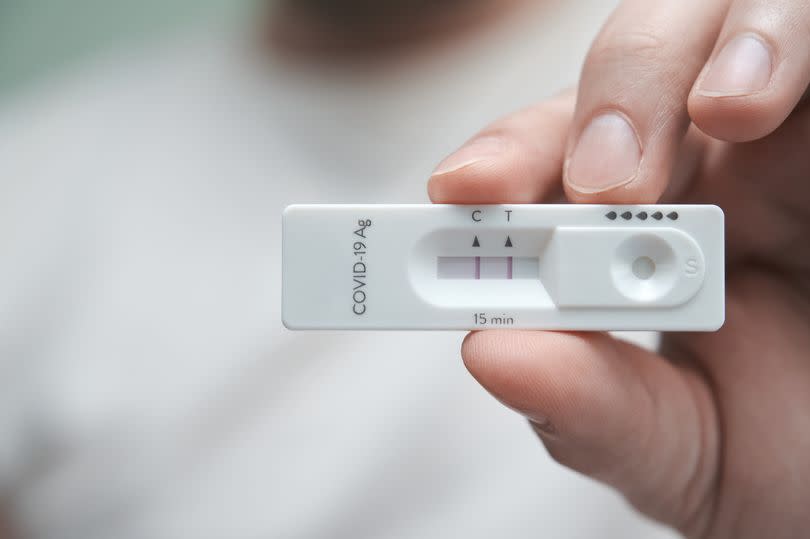GP on why people who are vaccinated against Covid are getting new FLiRT and LB.1 variants

New variants of Covid-19 have started to spread across the UK this summer, according to experts.
The surge is driven by the emergence of new variants named FLiRT and LB. 1, which are causing an increase in reports of cold-like symptoms. Some health experts have suggested that the two variants might be able to evade immunity, which is why people who have been vaccinated are still getting ill.
Warwick University virologist Professor Lawrence Young told the i newspaper said: “The virus hasn’t gone away and is certainly not a seasonal infection. A combination of new, more infectious virus variants and waning immunity is very likely contributing to these increased levels of infection.
READ MORE: New FLiRT and LB.1 Covid variant symptoms as experts speak out
“The hope is that this will not result in a big wave of infection but we need to keep a close watch.”
Dr Mariyam Malik, an NHS and private GP at Pall Mall Medical, outlined the reasons for why these new variants appear to be infecting those who have been vaccinated. Dr Malik said: "The FLiRT variant has specific changes in its spike protein that might make it spread more easily and dodge immunity from past infections or vaccines.
"Similarly, the LB.1 variant has mutations that help it spread and possibly weaken the protection we get from previous immunity, making these variants different from earlier versions of the virus.
“New variants come about because the virus naturally changes over time,” adds the GP. “When lots of people get infected, the virus has more chances to mutate. Also, our immune responses from past infections or vaccines can push the virus to evolve.”
Discussing the symptoms of the new variants, Dr Malik added: "The symptoms of the FLiRT and LB.1 variants are generally like those of earlier Covid-19 strains.
"Common symptoms include fever, cough, fatigue, loss of taste or smell, sore throat, muscle or body aches, shortness of breath, headache, and a runny nose.
“People infected with the FLiRT and LB.1 variants do typically test positive on standard PCR test. Rapid antigen tests also known as lateral flow tests can also detect these variants, though their sensitivity might vary.”
The latest World Health Organisation Covid-19 update, published on June 17, says the KP.2 and KP.3 variants - which are referred to as the 'FLiRT variants' - are currently 'variants under monitoring' (VUMs) and continue to show increasing prevalence across the globe.

 Yahoo News
Yahoo News 
